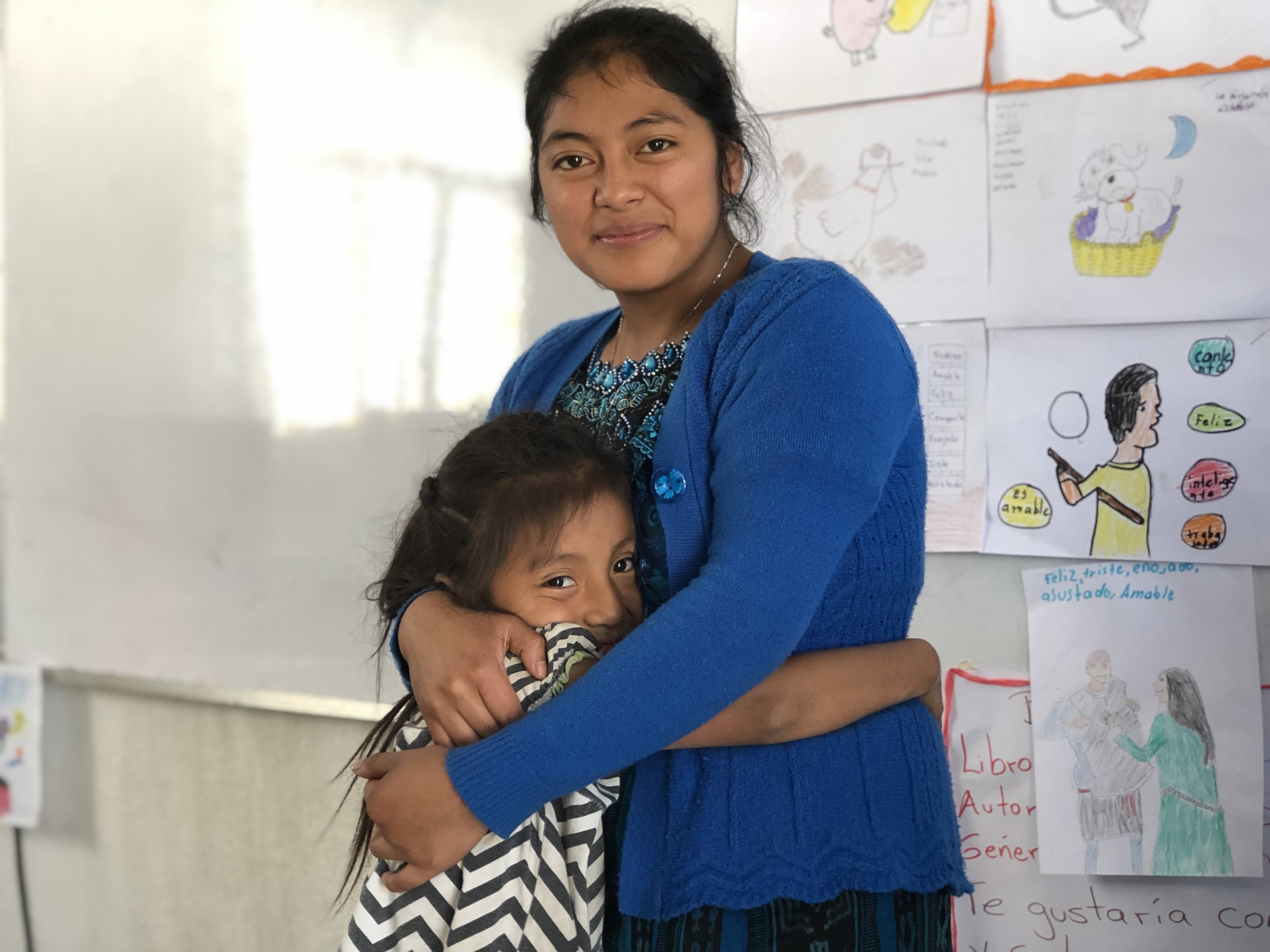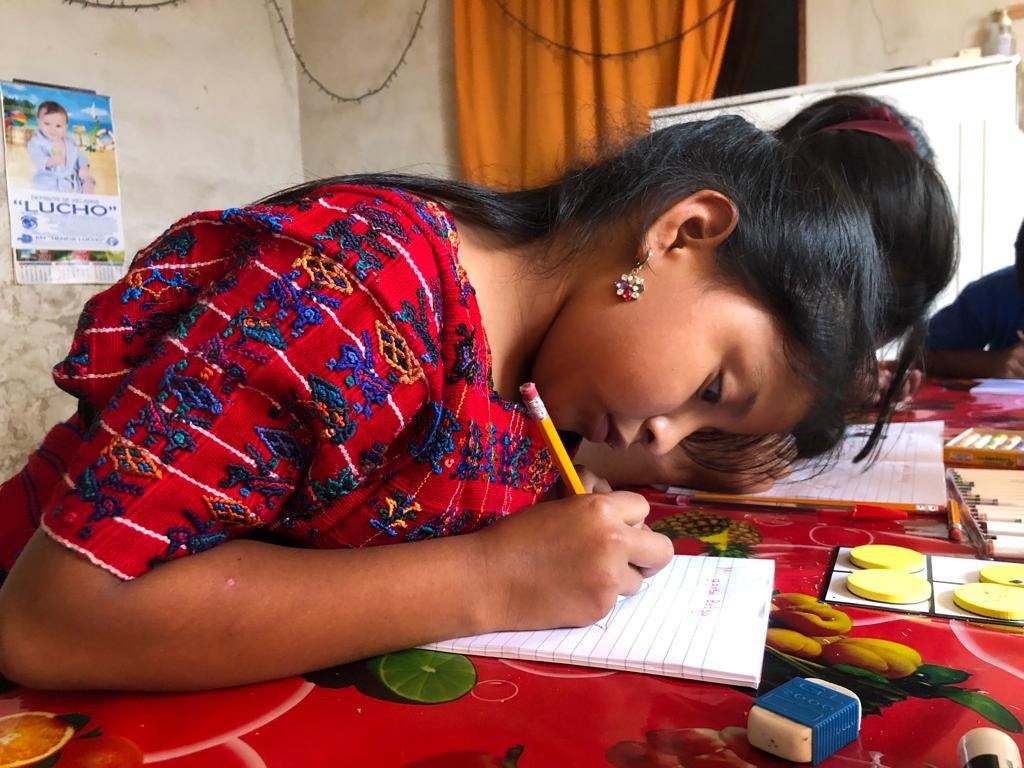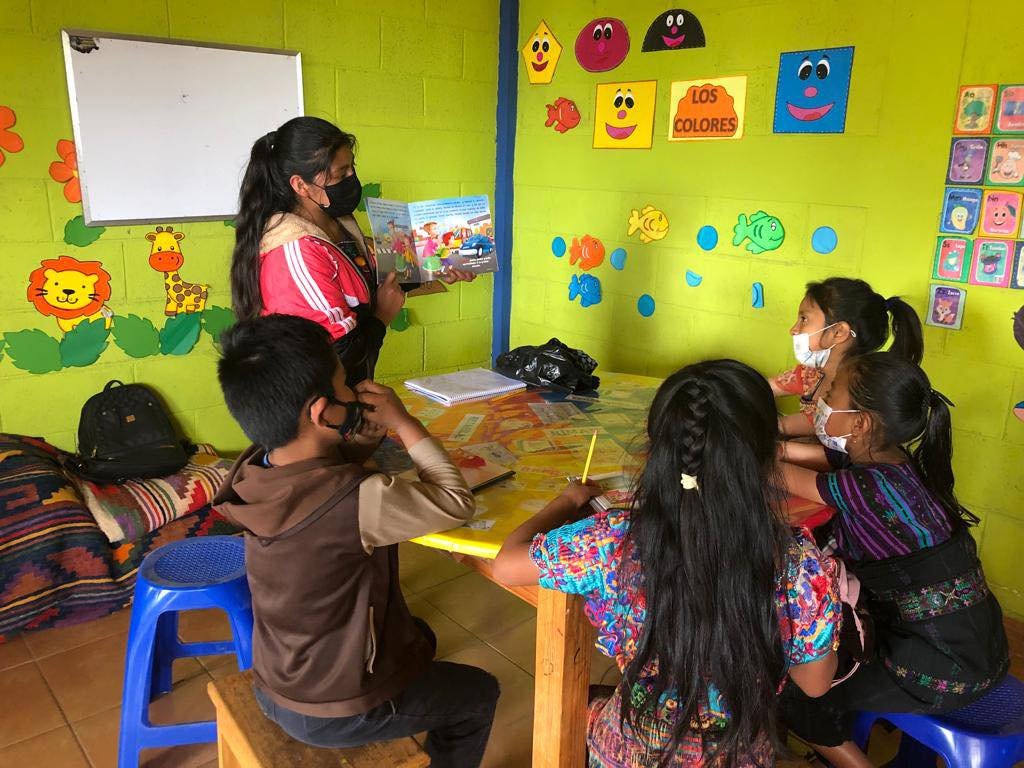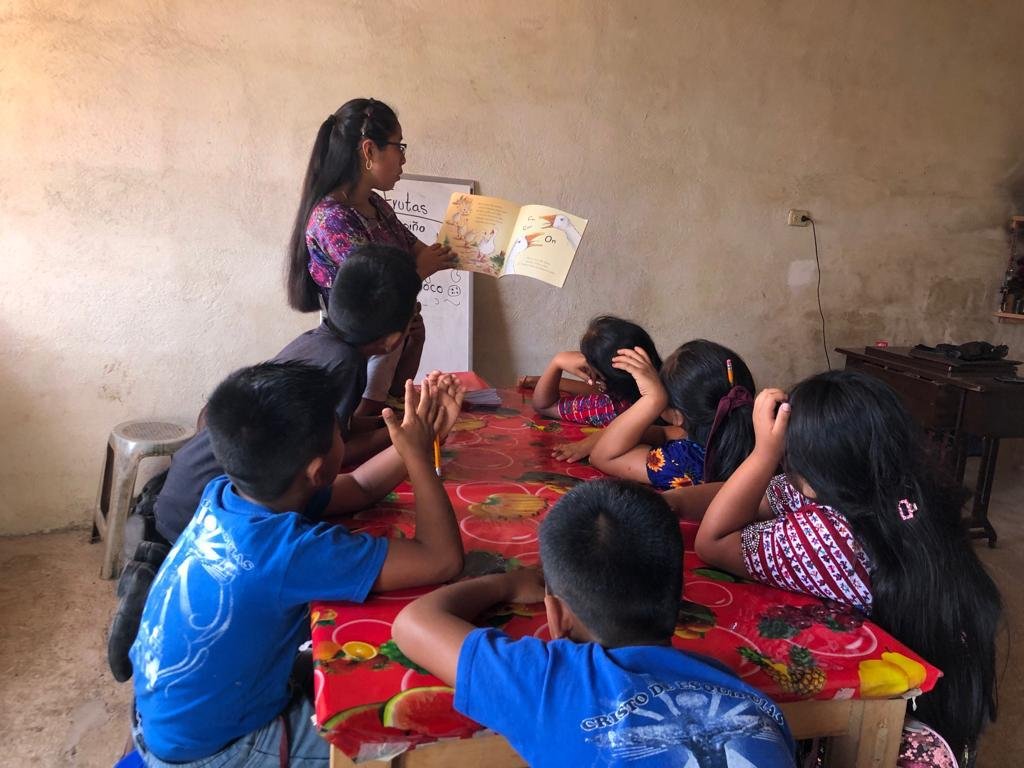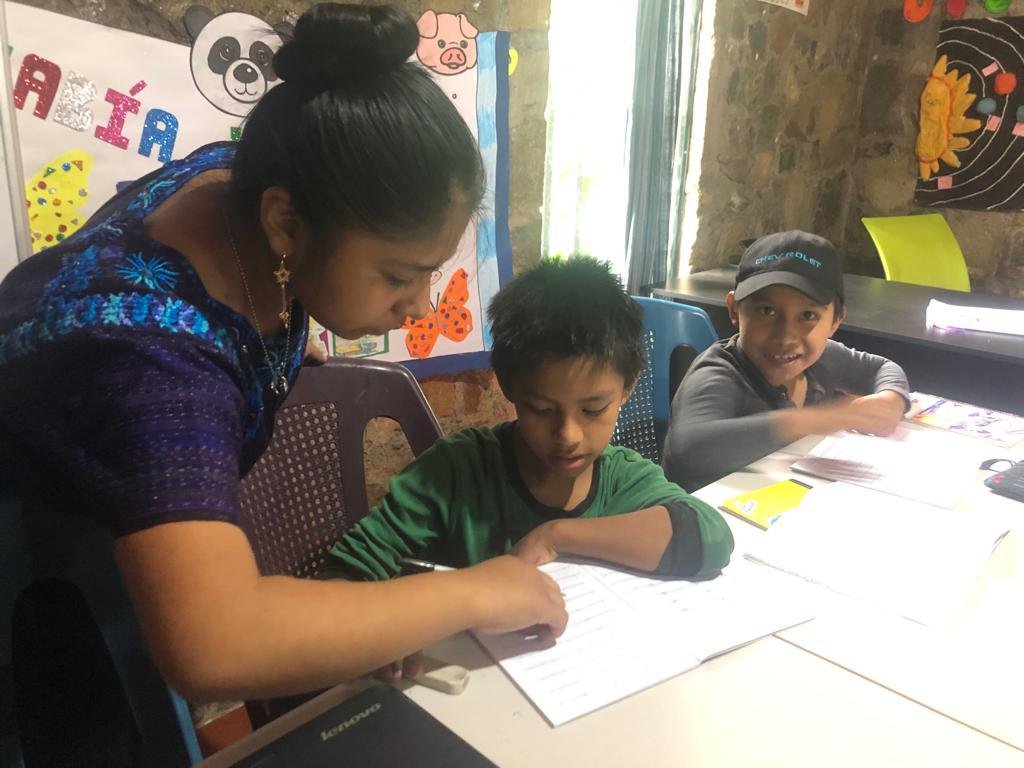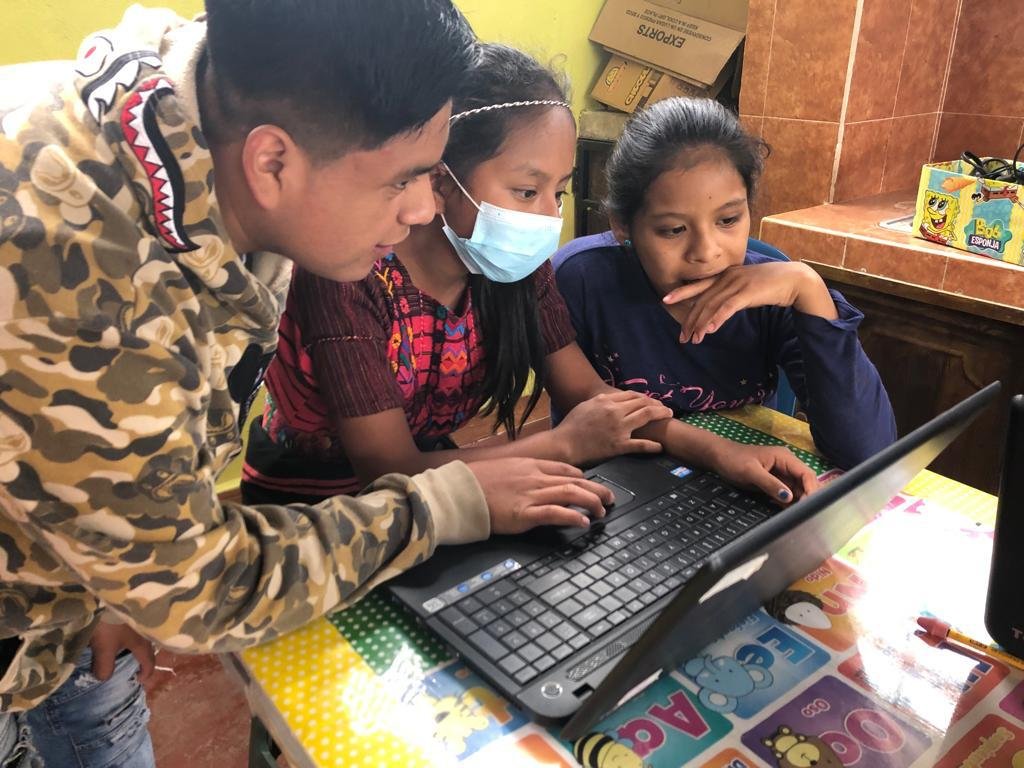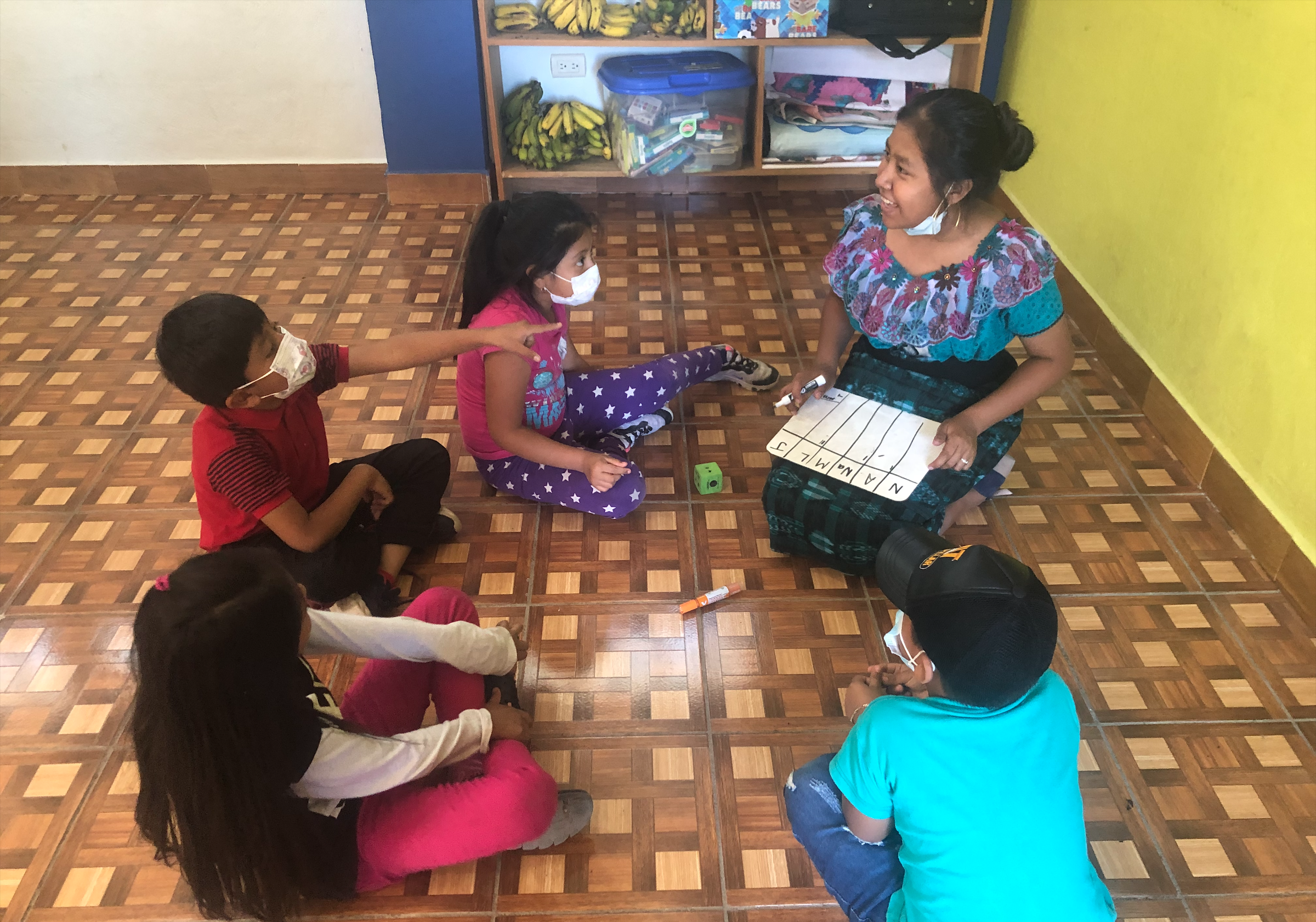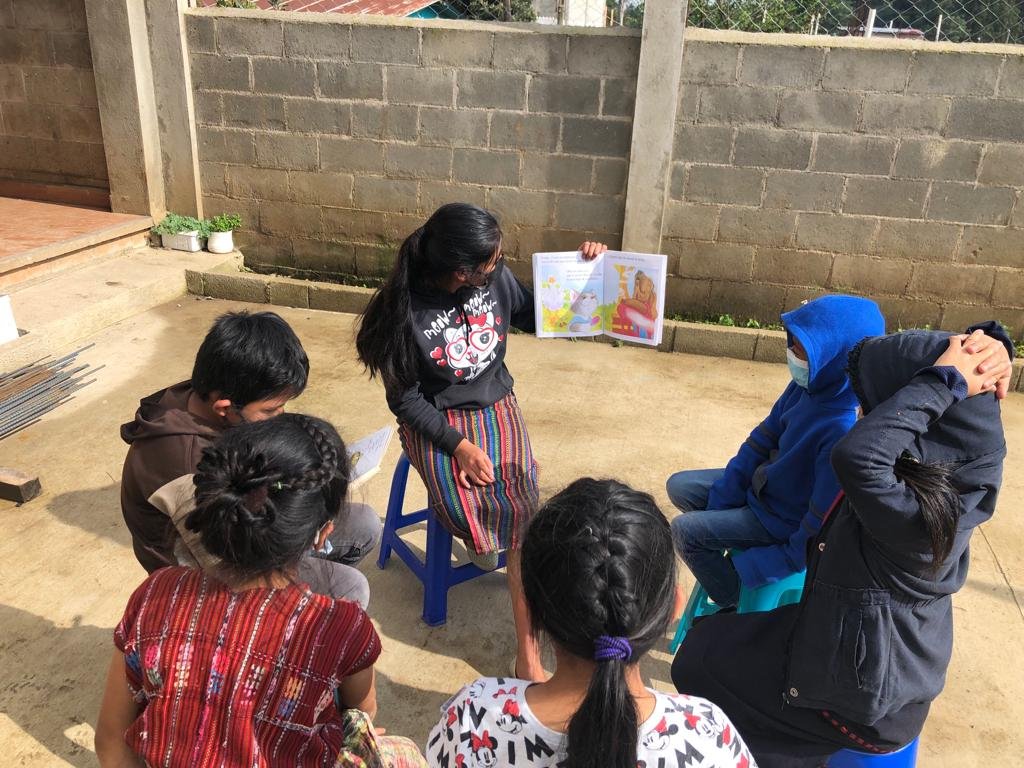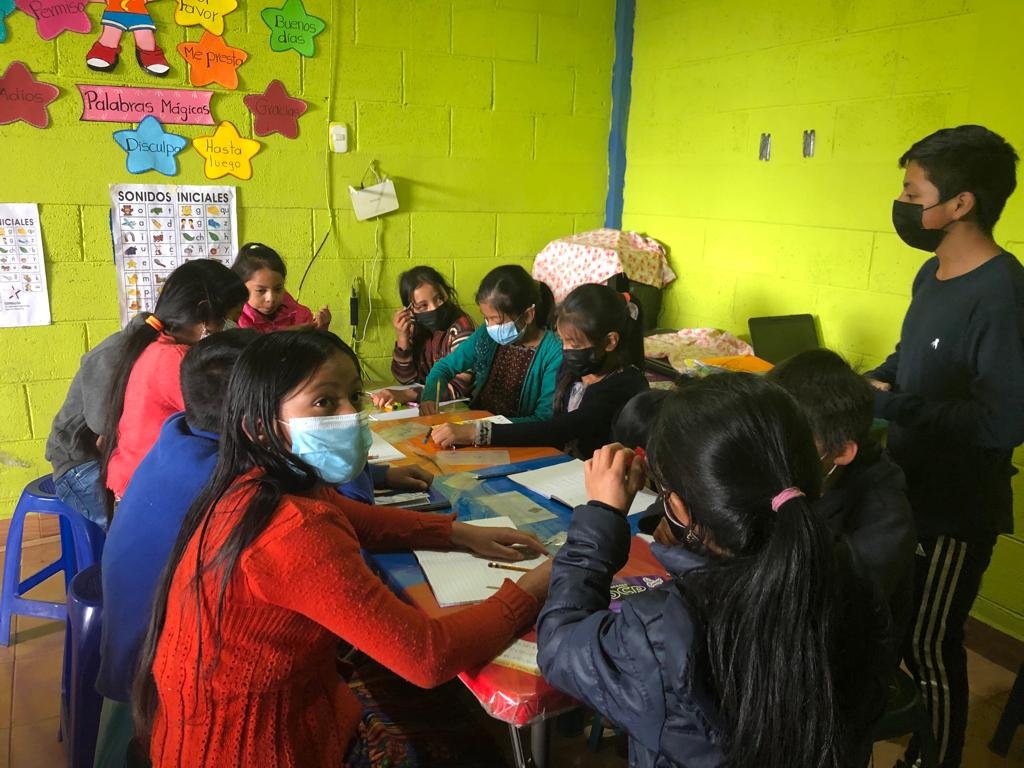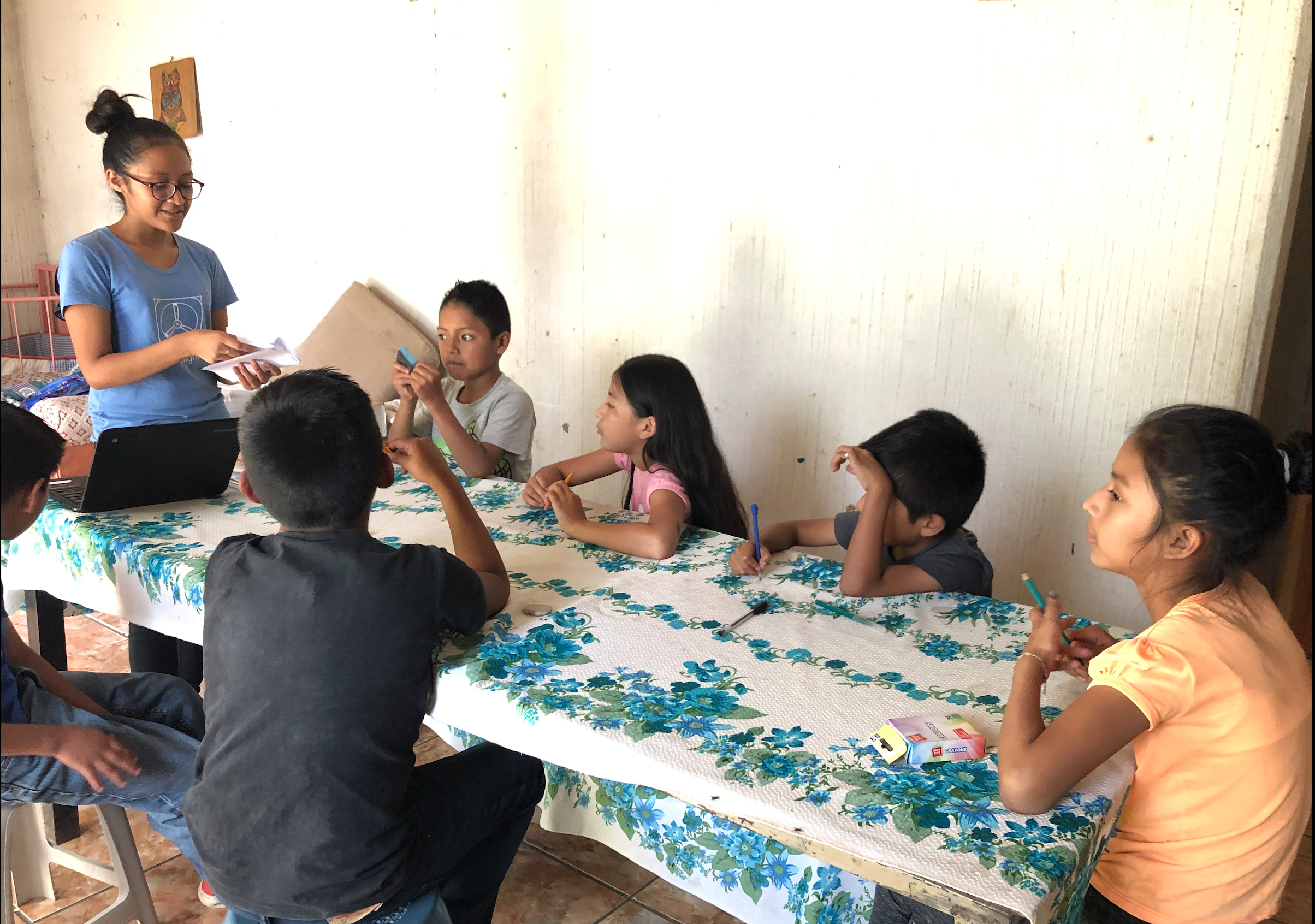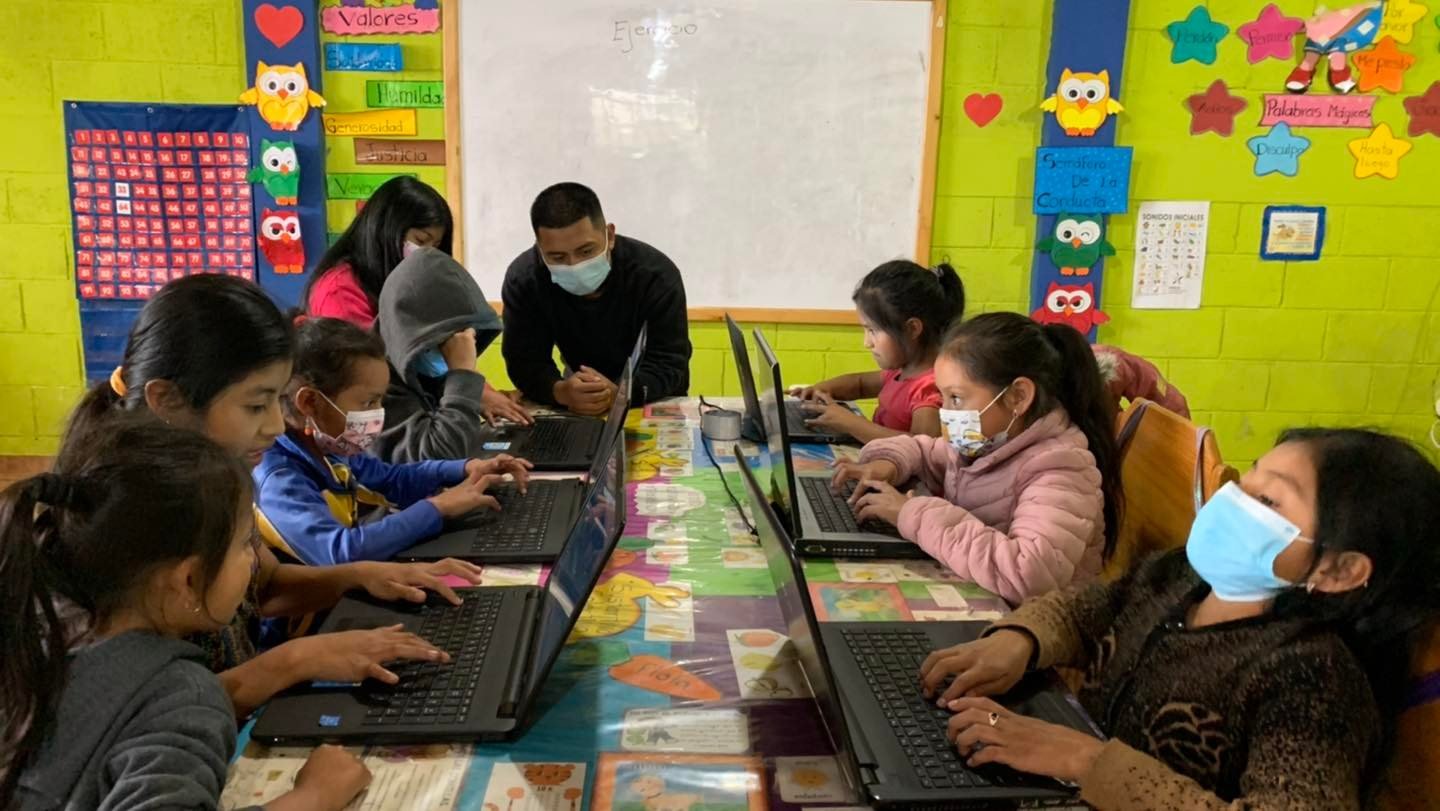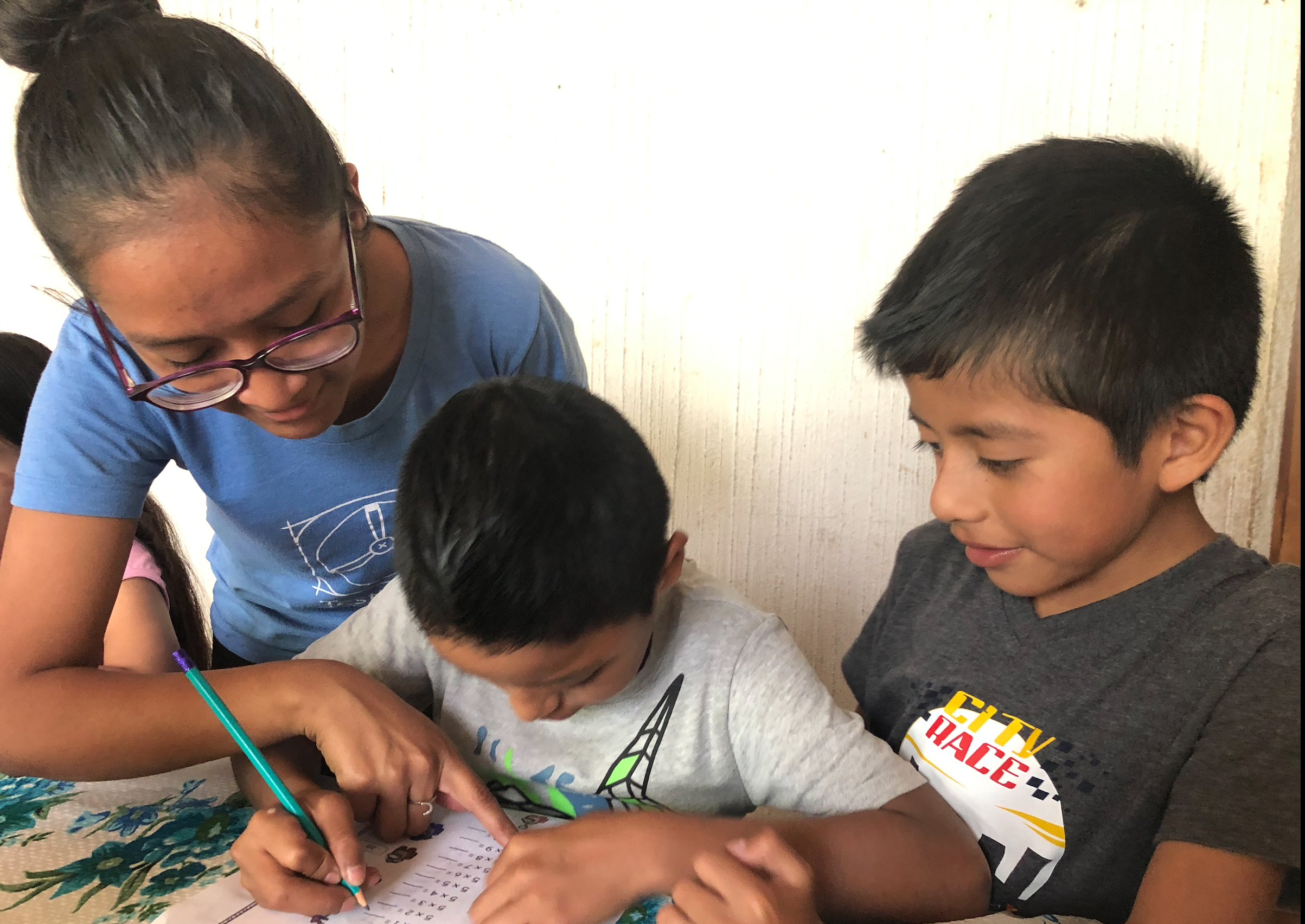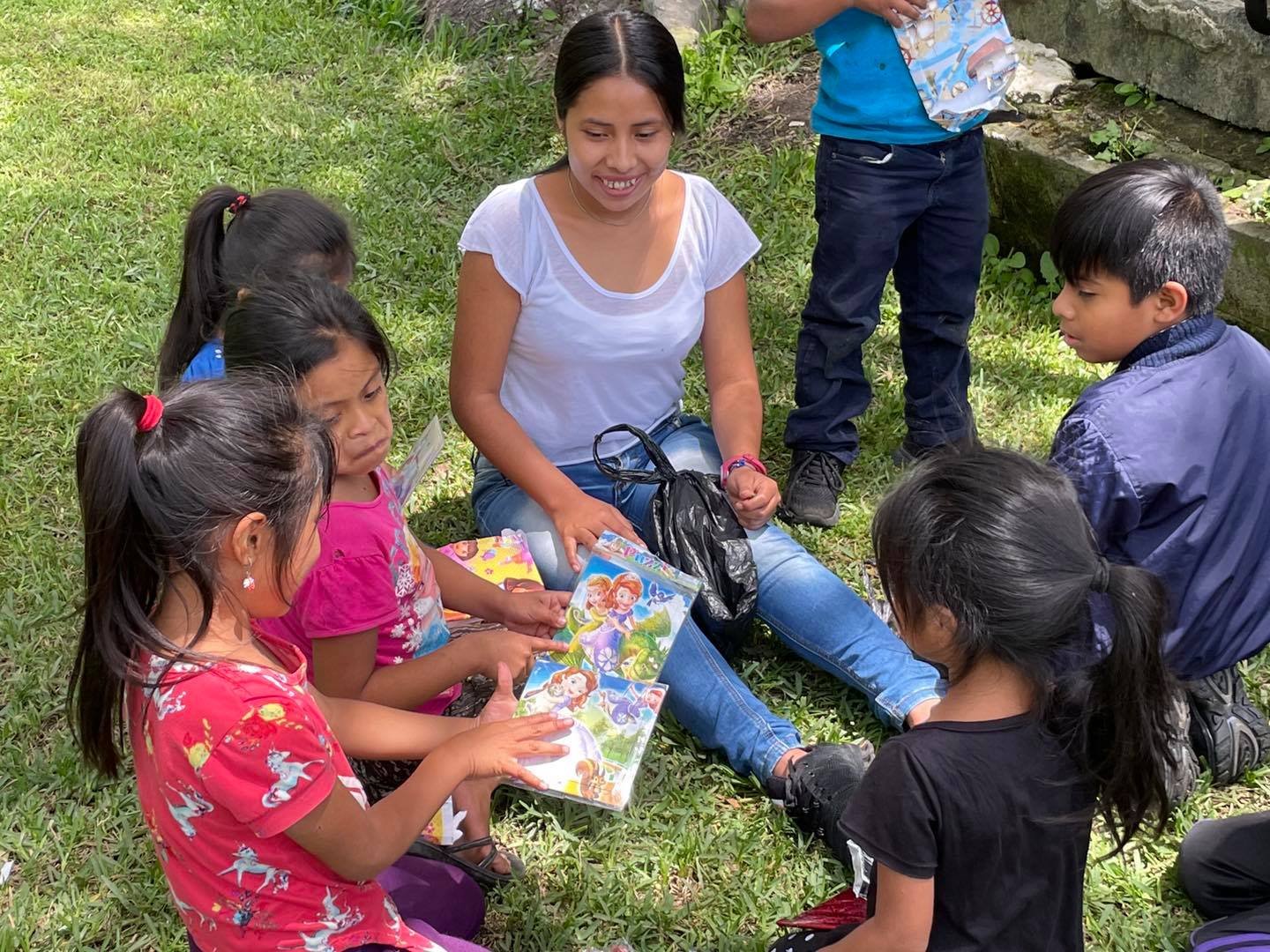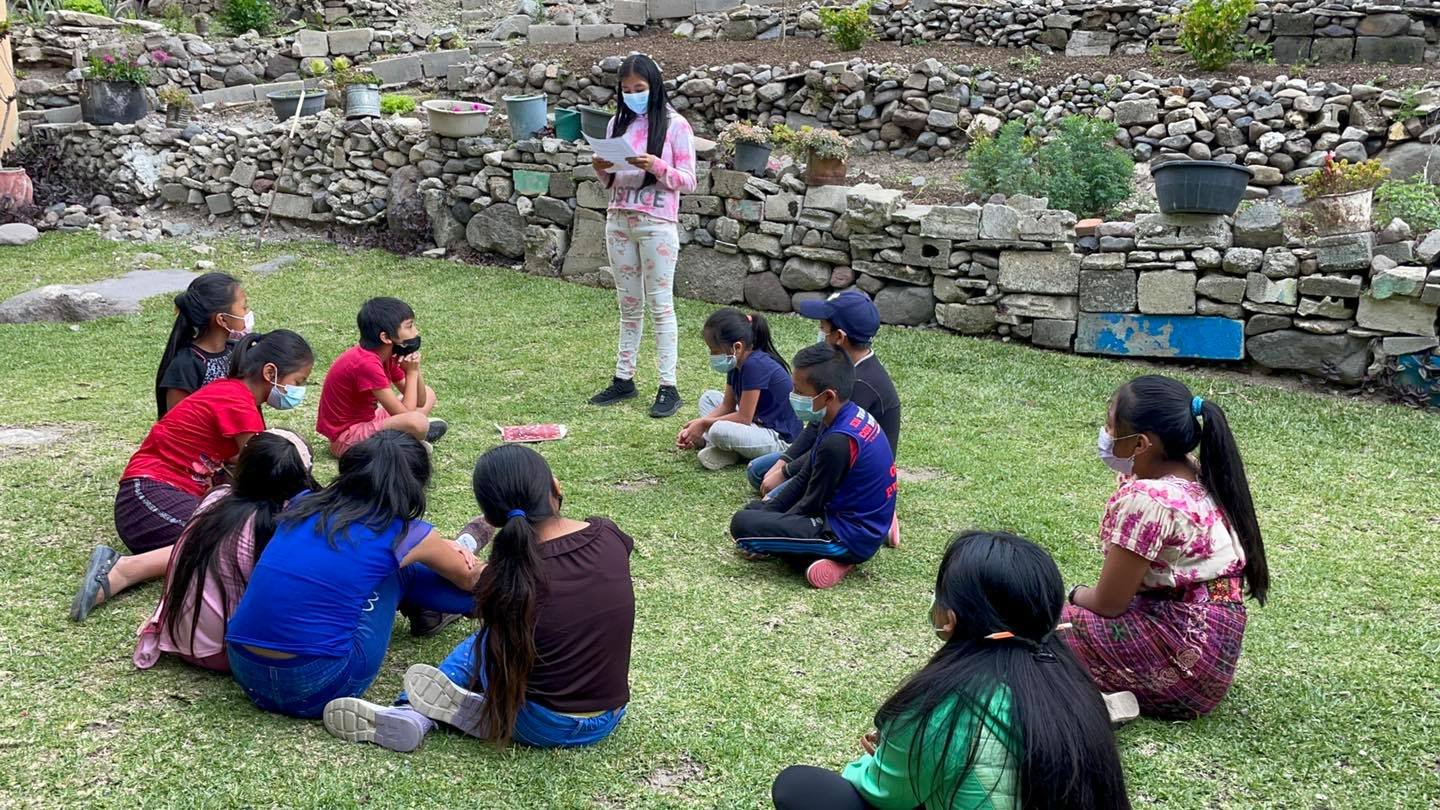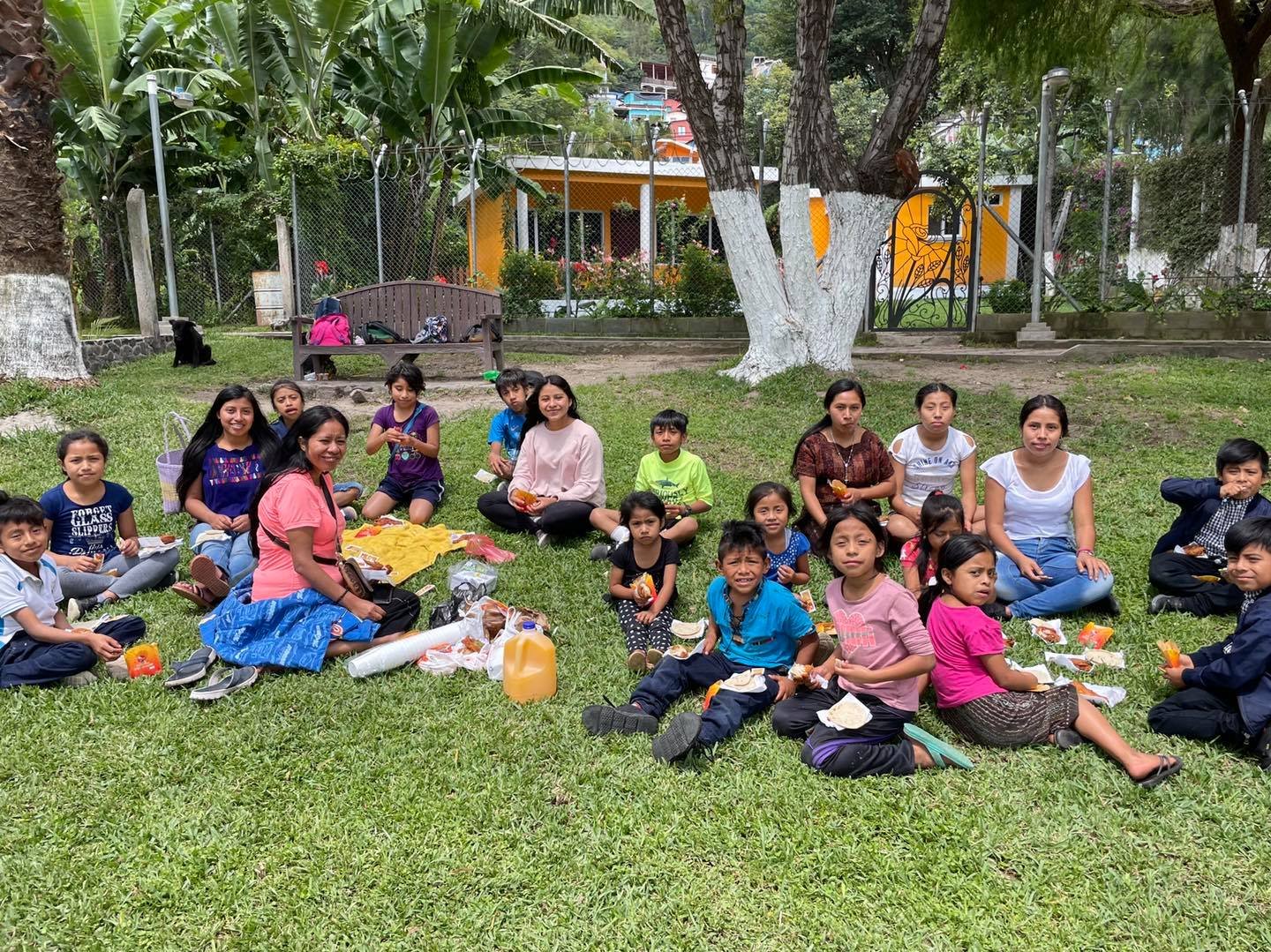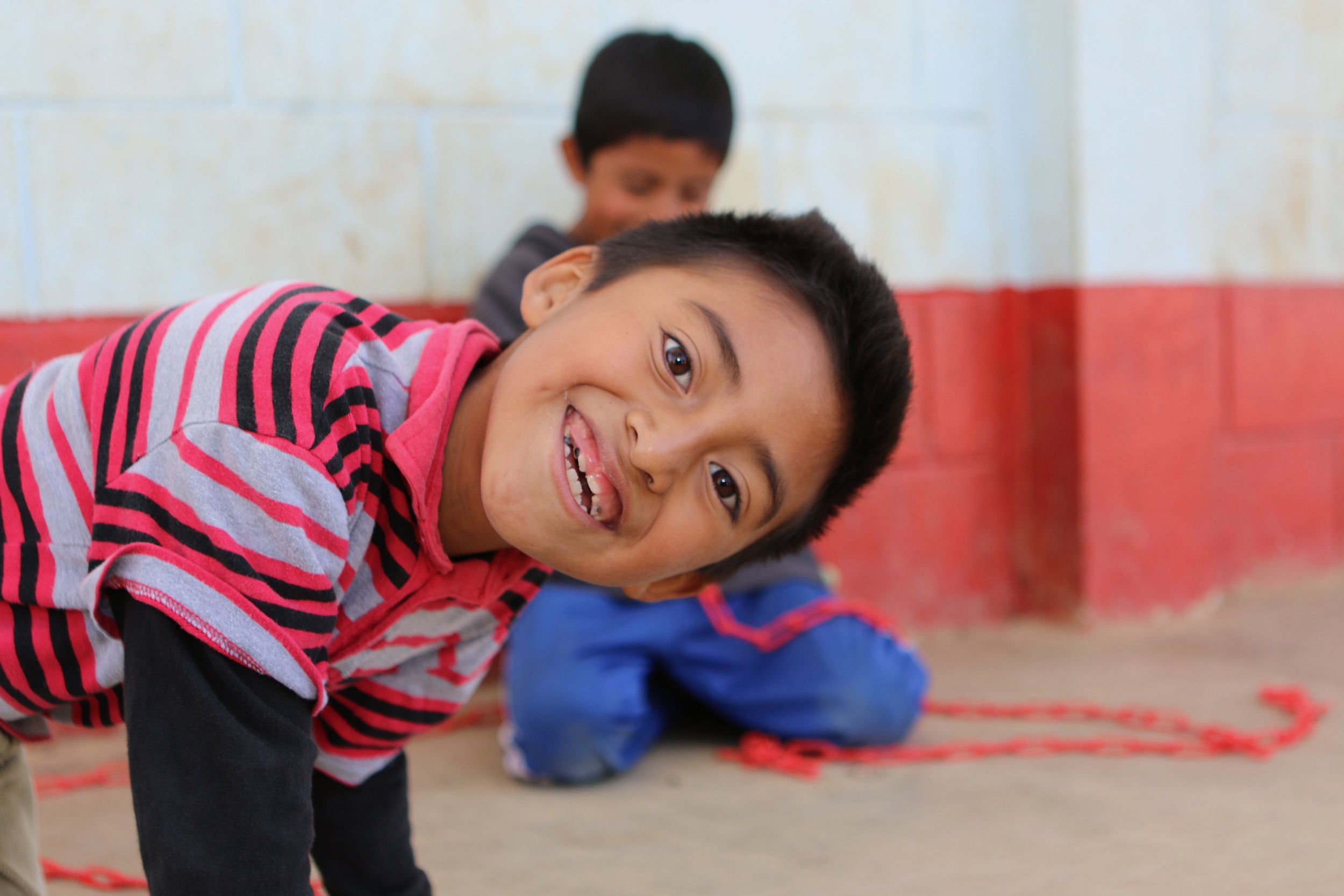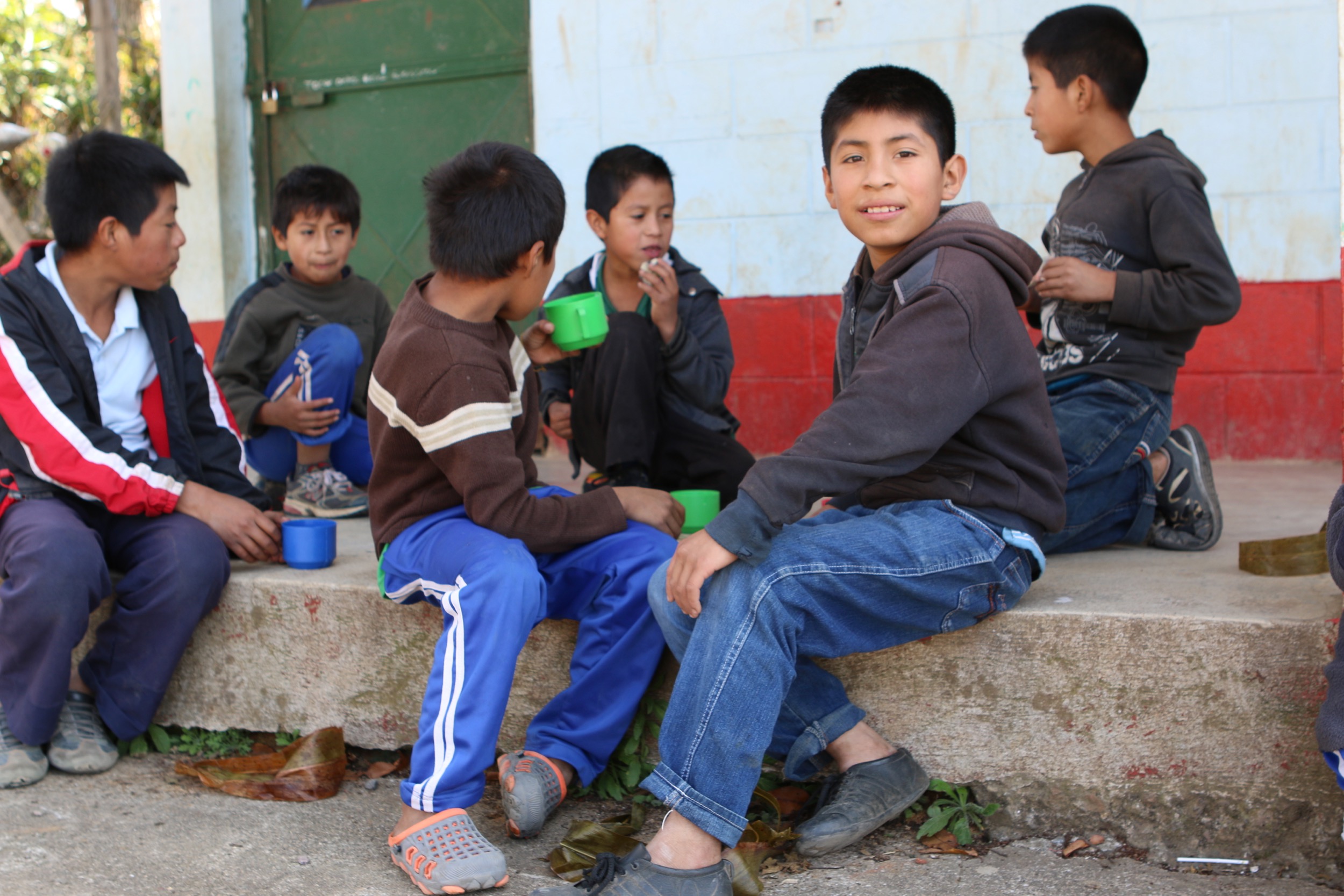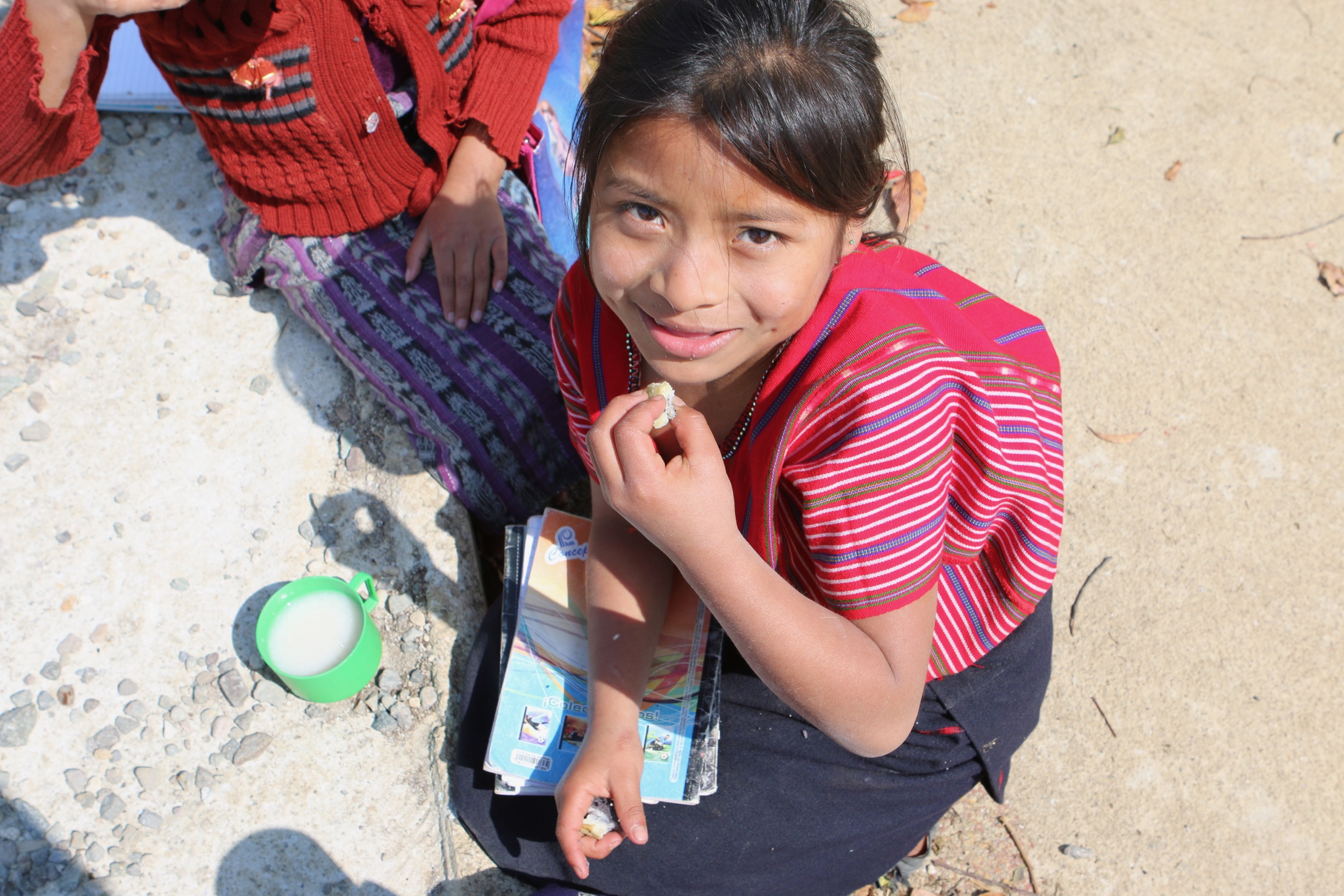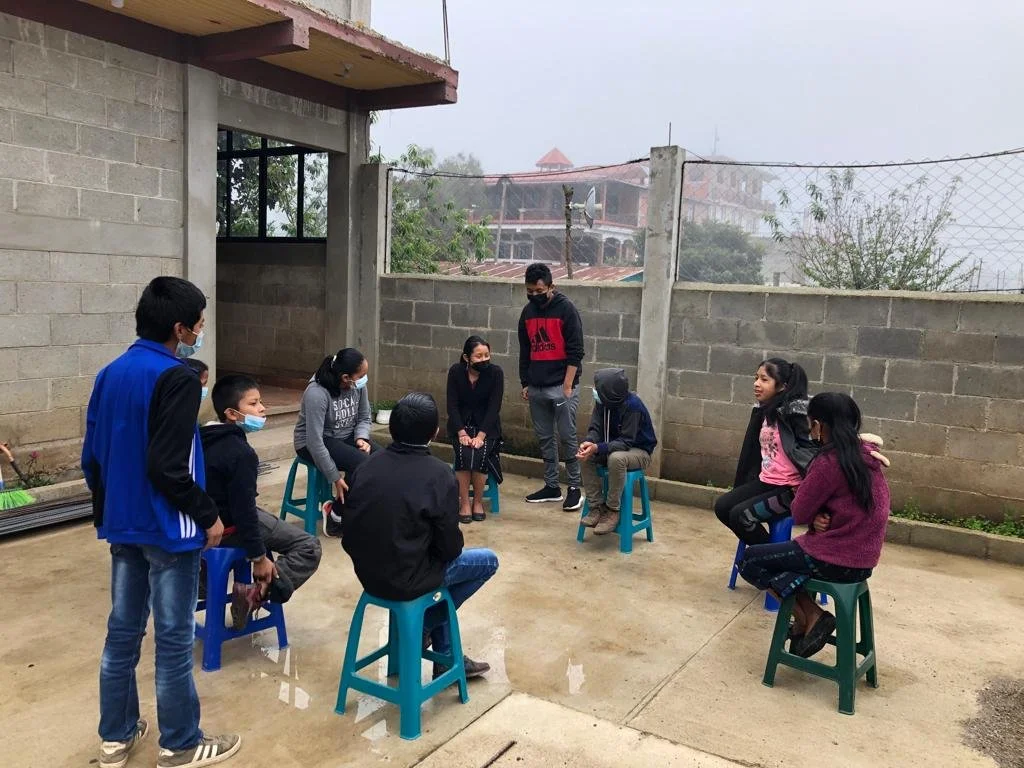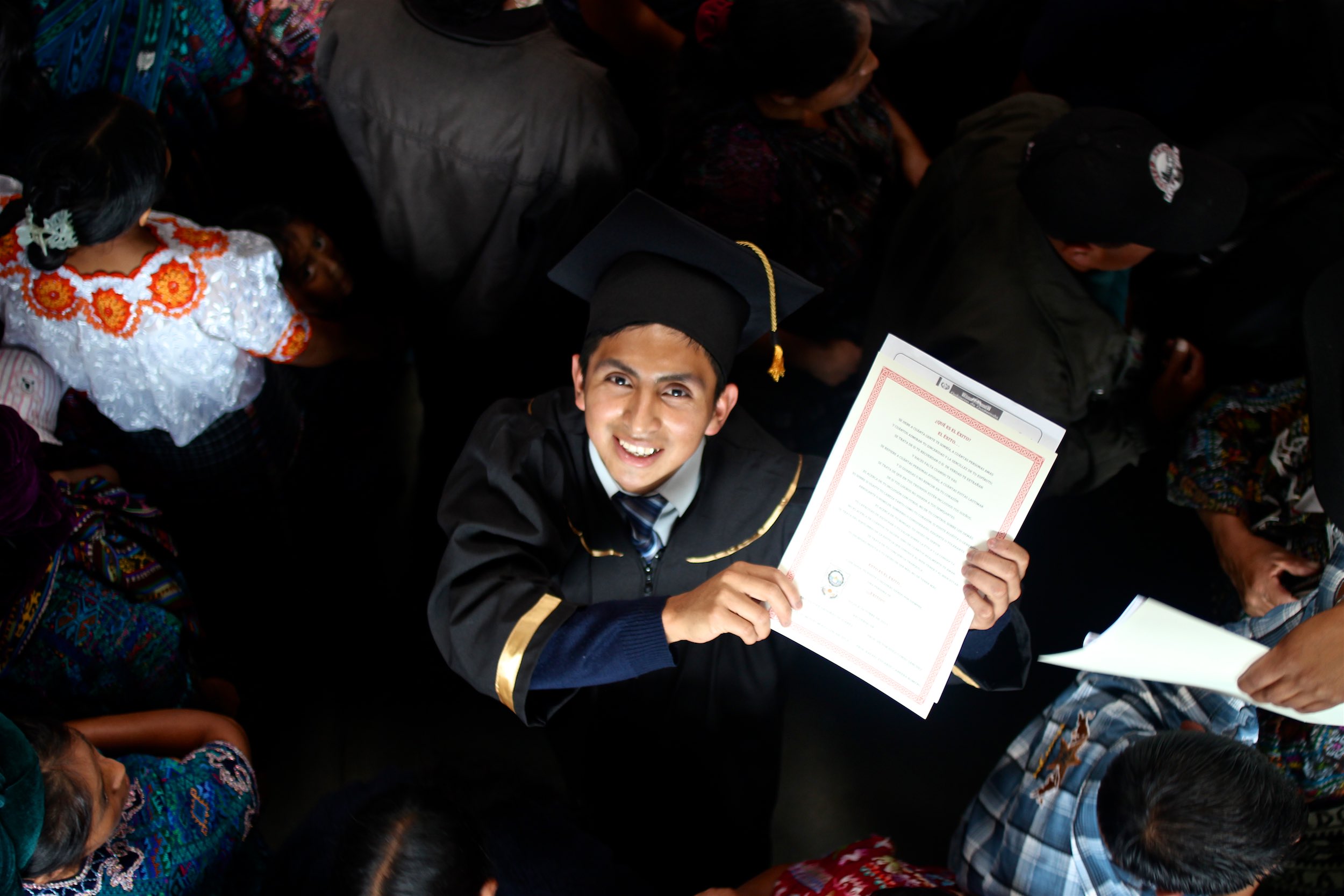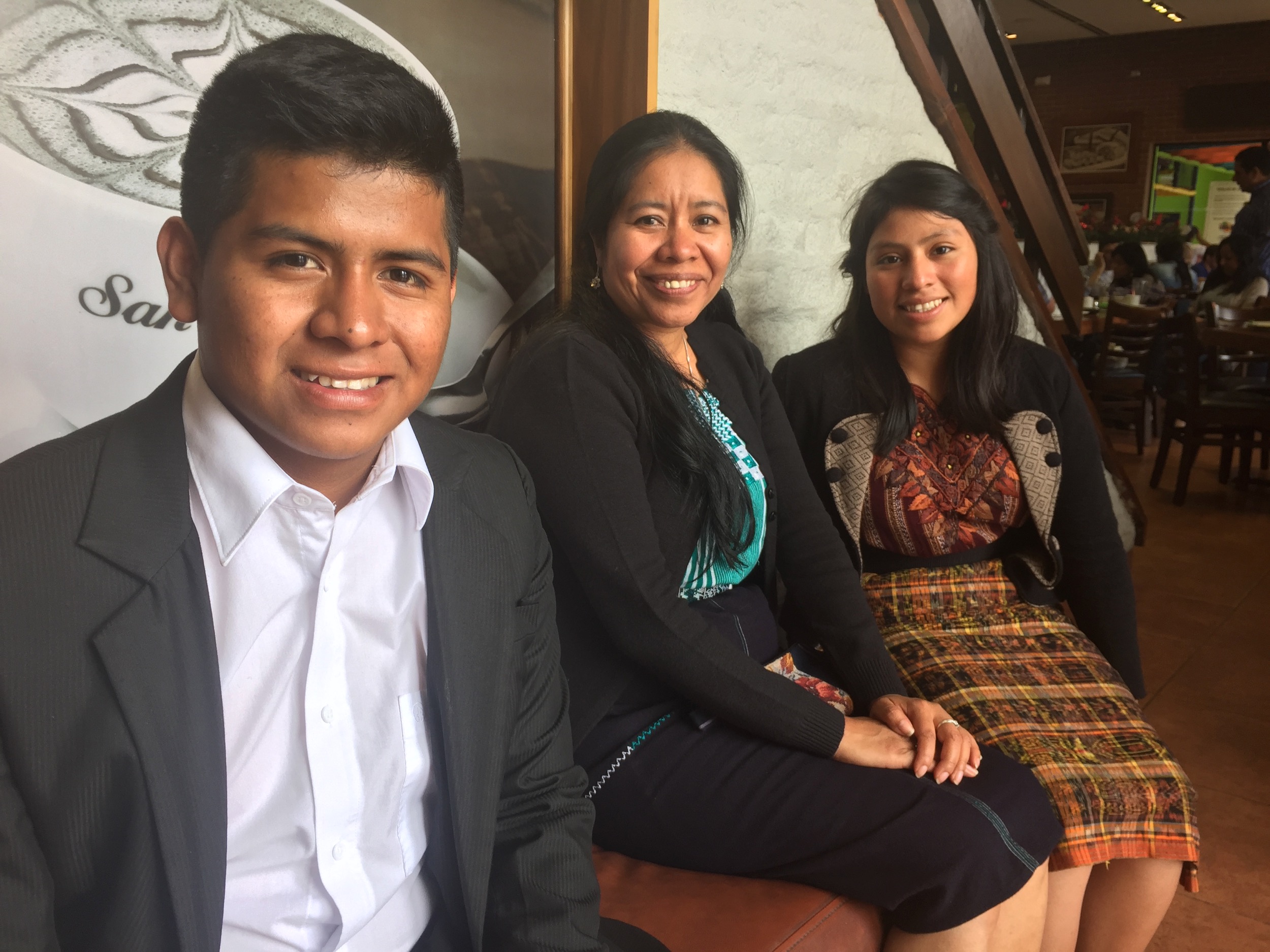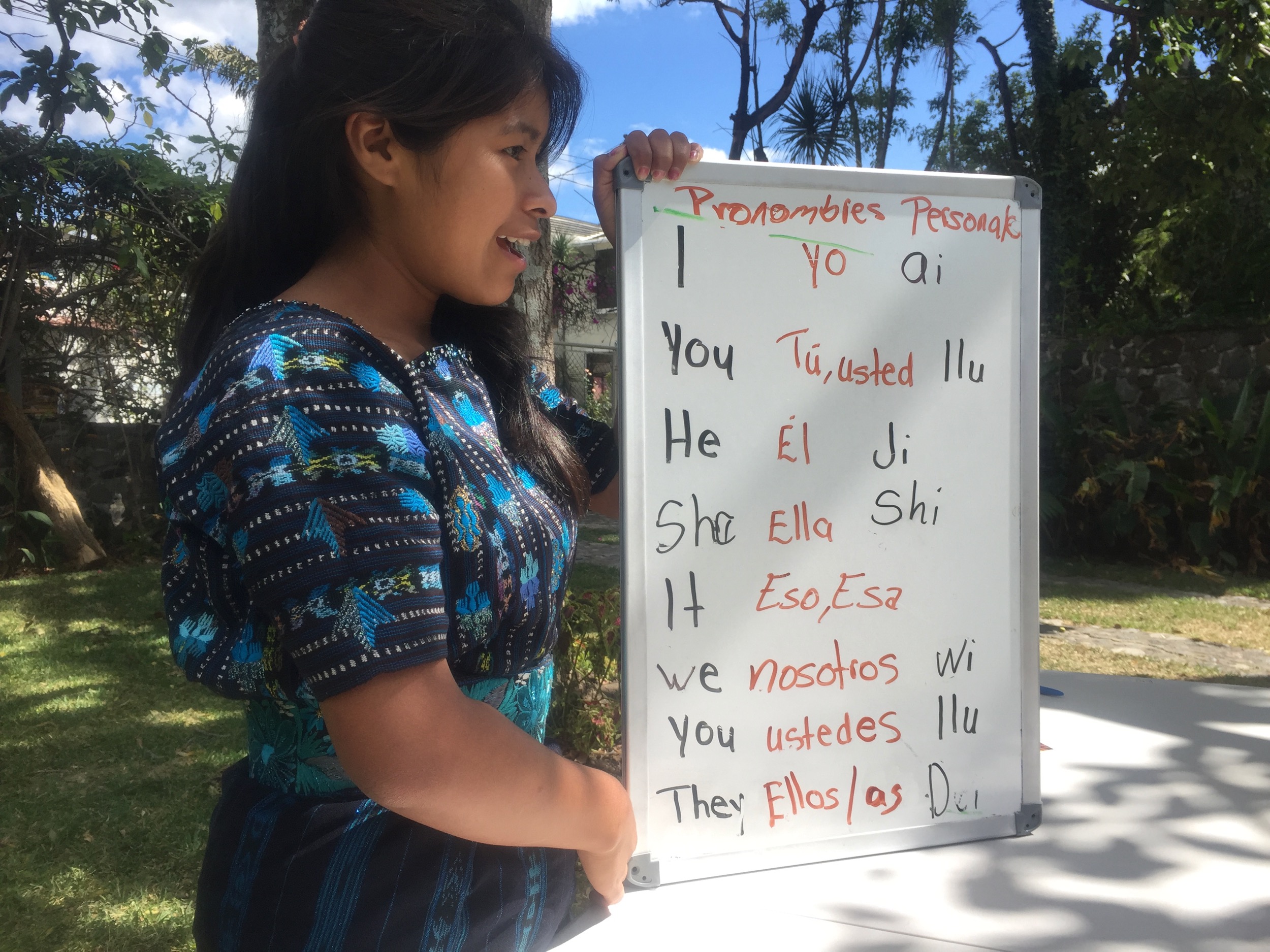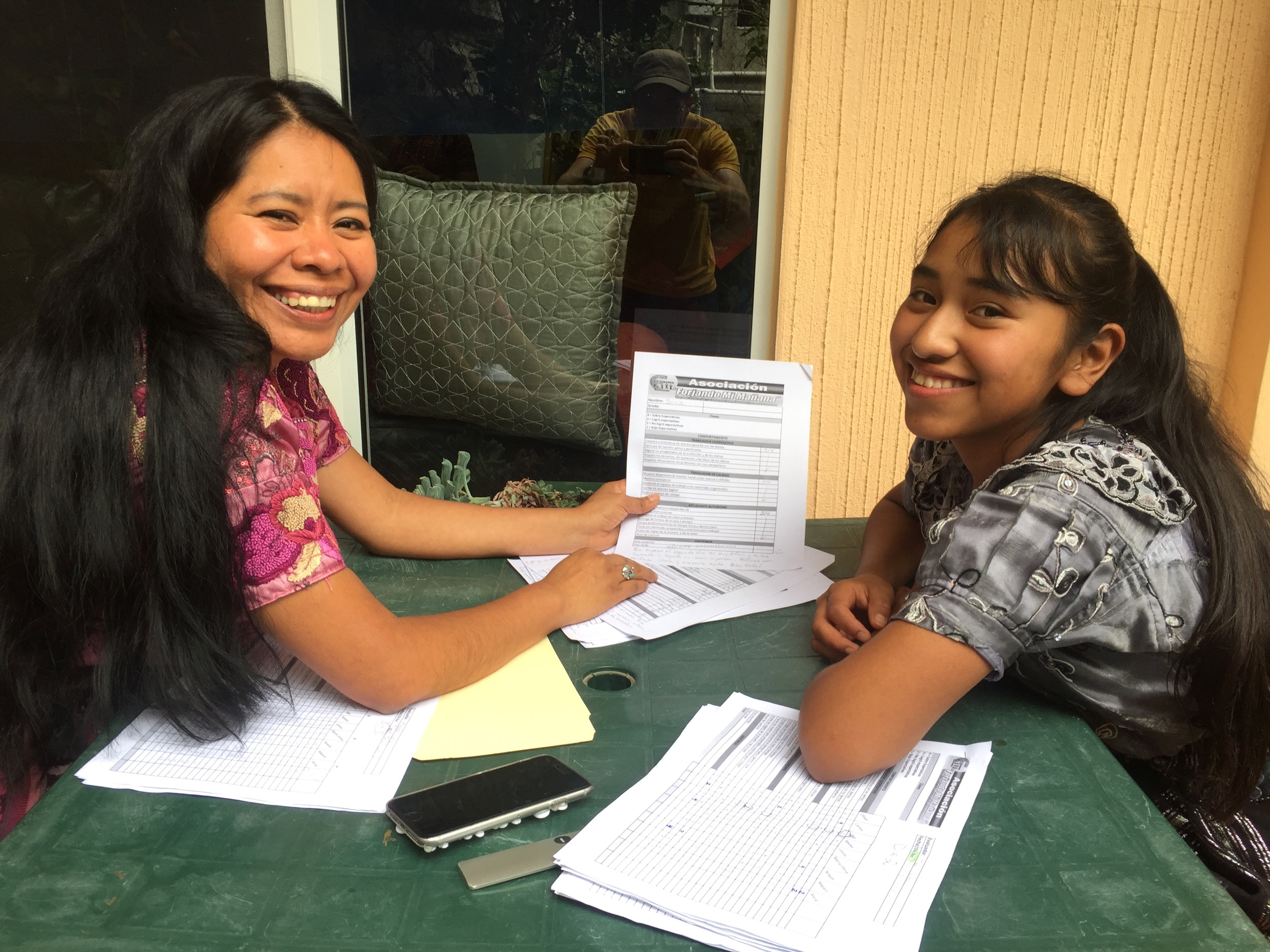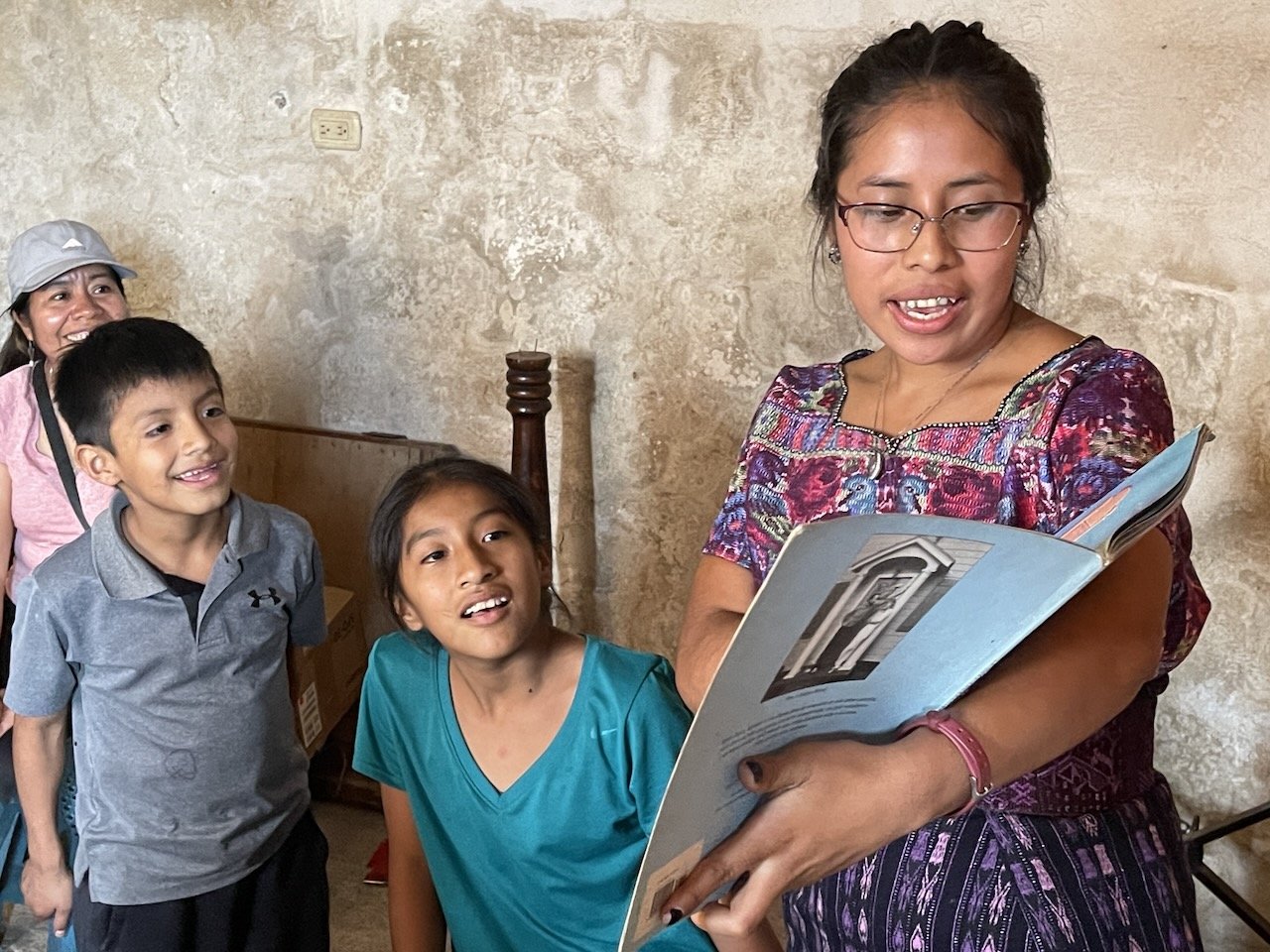
The Forging My Tomorrow School - Scholarships
If we can give something for our community, for these girls, for these boys, why not?
- Candelaria Xep, co-founder
LEARN ABOUT THE STORY OF FORGING MY TOMORROW IN THE VIDEO BELOW:
WHO: We choose scholarship students for the Forging My Tomorrow school, starting in seventh grade, based on their drive, work ethic, financial need, and leadership aptitude. They come from low-income rural villages, and often their parents can't read, but they believe that education is the key to changing their lives. Every student in our program would have been an economic dropout, but in five years, they learn English, technology, and leadership - and they break the cycle of poverty.
Would you like to join something that works?
ALVARO THEN: Alvaro was a fourteen-year-old scholarship student, helping the children of his village with their homework. He started without a word of English, no experience in technology, and no other opportunity to continue studying.
ALVARO NOW: Ten years later, Alvaro works in English on Salesforce cloud implementations with Torrent Consulting in Antigua, Guatemala, and comes back to coach the students who hope to follow in his footsteps.
THE NEW SCHOOL:
In January 2025, we opened the FORMA Tech School in Panajachel, and transferred most of our students to study there. For a few of the senior students, it made more sense for them to finish and graduate at their current schools. For 2025, the FORMA Tech School offers grades 7, 8, and 9. In 2026, we will add grade 10, and then add a grade every year after that, until our students can graduate high school with us.
LEARN ABOUT THE NEW SCHOOL IN THE VIDEO BELOW:
WHAT DOES “FORGING MY TOMORROW” OR “FORMA” MEAN:
We call our association "Forging My Tomorrow," which is "Forjando Mi Mañana" in Spanish, because it is the students who are forging that future, for themselves. We call it “FORMA” for short.
With our Canadian and American volunteer teachers, we host English House immersion programs during school vacations in November-December. These are intensive English experiences, since 2013, that boost our students in their conversational and written English, through games, reading, classes, and spending life together.
TEENAGERS AS LEADERS:
We don't wait for them to become leaders in the future; we expect them to lead now. We train our teenage students, starting at 13-14 years old, to be tutors within their own communities, developing younger children in mathematics, reading and writing. The teenagers, as part of receiving their scholarships, start "paying it forward" immediately. By the time they graduate from high school, they have been teachers for five years.
A DAY IN THE LIFE AT THE FORGING MY TOMORROW SCHOOL:
FINANCES:
SCHOLARSHIPS, LIFE SKILLS, LEADERSHIP TRAINING, AND EXTRA ACTIVITIES:
Typical Junior High or High School Student: $3000 USD annually.
General Scholarship Fund: We welcome donations of any amount you choose, which go towards helping all the students. We do not receive government funding, and so your help makes this possible.
English House: Support from friends like you makes our English House leadership development program possible. We do not have other sources of funding.
Technology: We use donated refurbished laptops, brought by friends.
FAMILY PARTICIPATION:
Students win scholarships covering at least 80% of the costs, and we expect the student and family to sacrifice and contribute a part for a valuable education, which helps them understand and prioritize its value.
RESULTS FROM OUR GRADUATES (WHY WE KNOW THIS WORKS):
Evelyn won her first job as a Salesforce business analyst with Torrent Consulting in Antigua, an American technology company. She is now one of the most-certified Salesforce workers in Central America.
Florinda won a high school scholarship in Canada, worked as a Spanish teacher for American students in Panajachel, taught English, and studied business. She now works remotely from Panajachel with Scout Technology Guides, a Microsoft managed services provider in Canada.
Miguel won the full-ride Walton Scholarship to study in the United States at John Brown University, thanks to the Walton Family Foundation of Wal-Mart. He graduated in 2019, with a degree in international business, and worked with TELUS International in Guatemala City, then Ernst & Young, and then Torrent Consulting. The Walton Scholarship awards only 2-3 scholarships in all of Guatemala each year. Miguel is now a regional manager for Coca-Cola.
Tono won a Walton Scholarship as well, and graduated from John Brown University in 2020 in business management. He works remotely with Scout Technology Guides as a technical expert, and teaches technology to the scholarship program students.
Alvaro won a high school scholarship in Canada, and is now working with Torrent as well, supporting the IT needs of his Salesforce team, and studying systems engineering.
Mayra won a Walton Scholarship, taught English at a school in Xiamen, China, then worked at TELUS, and is now a Salesforce analyst at Torrent Consulting as well, along with Mayrita..
Donis teaches mathematics to Guatemalans, Spanish to foreigners, and studies systems engineering. He is currently a Spanish Teacher at Jabel Tinamit Spanish School.
Angela studied on scholarship at Selkirk College in Canada, studying business, and is now the English teacher and administrator for the Forging My Tomorrow program. She has been instrumental in the opening of our new school.
Eimy is on scholarship at Taylor University in Indiana, studying pre-med, after graduating on scholarship from Wheaton Academy in Chicago.
Silvia is on scholarship at Taylor University in Indiana, studying business, after graduating on scholarship from Wheaton Academy in Chicago.
Eighteen of our students have won scholarships to study English in California at the Summer English Institute during July, an intensive program with students from around the world.
Mayerli and Rodolfo graduated in fall 2021, and started working online immediately with UrbanTec Property Management, a condominium management corporation from Calgary, Canada. Edgar, Angie, Daniel, and Angelica have now joined their team.
Yoselin, Jose, and Carlos are working with Incline Technologies, a Canadian engineering company, working online from the Panajachel office.
Every graduate with a job is a significant financial supporter of their family, often with a starting wage that is quadruple the rest of their family combined. This is the power of educating students with the combination of technology and English skills. It opens the door to generational change.
DID YOU KNOW?
1/3 of Guatemalan teens drop out before age 15, largely due to poverty. Public school is only free up to sixth grade.
how many?
42 students
Ages 13-18
from where?
Lake Atitlan-area villages like:
Buena Vista
Peña Blanca
San Andres
Santa Catarina Palopó
San Antonio Palopó
Contact us: info@formaguatemala.org
“Since I was 16 years old, I had the opportunity to be part of the Forging My Tomorrow Program, and since then, my life began to take a different direction. This program has not only been an academic support, but also an emotional and personal accompaniment that has given me the tools to believe in myself and build the future I dreamed of, which sometimes seemed distant. ”
Children's Tutorials
Our vision is to help them explore and expand their abilities and capacities.
- Candelaria Xep de Garcia
WHY: Mayan children in the rural villages around Panajachel usually speak their Kakchiquel dialect until they enter school. School, however, is taught only in Spanish. The first few years of school are consequently very difficult and discouraging, and parents are often unable to help, since they speak minimal Spanish themselves, and may be illiterate or minimally educated.
““The Saturday tutorials help my two children to improve their reading skills; before attending the tutorials, I heard them struggling while reading and trying to understand what they read, but now, with Mayra, their tutor, they read better and understand how fun it is to read books.””
Dilia, as a scholarship student, teaching at the Panajachel children’s tutorials, after leading the year-end celebratory water fight, followed by a special meal of fried chicken and French fries. She is now studying to be a doctor in Quetzaltenango. Her English is excellent.
WHAT: Our scholarship students, who are receiving tuition assistance and further education, are the neighbors of these children, and the local "heroes." They speak Kakchiquel, but also speak Spanish, are learning English, and they are uniquely positioned to motivate and inspire the next generation. When these teenagers lead Saturday literacy and homework-help tutorials for their young neighbors, the children stay in school, and surpass that initial obstacle.
WHEN: Tutorials are held in nine rural communities now, on Saturday mornings. These are voluntary, and extremely appreciated by the families of the children.
Carlos taught children’s tutorials for several years in Buena Vista. Carlos now works online in technology, with UrbanTec Property Management from Canada.
“We don’t give up. We give back.”
COST: Local communities are expected to provide a location. Our program provides the scholarship student teachers, school supplies, a nutritious Saturday snack to fuel learning, first-time learning excursions outside the villages, coaching for parents, and organization. The cost per group annually is $1400 dollars.
RESULTS: Children who attend regularly on Saturdays, give their best efforts, and have their parents behind them have a much better chance at success in school. We are tracking the comparative results, and have already seen some of the children mature into successful scholarship candidates, win our scholarships, and become the teachers. Angelica, Mayrita, and Oliver are examples from the Buena Vista tutorials.
Olga taught children’s tutorials for several years in Peña Blanca. She now works online in accounting for Scout Technology Guides from Canada.
““Thanks to this program my 8-year-old daughter finished her school year. At the beginning of the year, she was struggling with me to attend school. She said that she did not like school, and she was failing her first exams. Then I heard about this program, so I started sending her every Saturday. As a result, my daughter enjoyed going every Saturday and her grades started improving. Thanks to this program, my daughter passed her school year.””
IMAGINE if you entered Spanish immersion school at age six. Would you need some extra help?
how many?
200+ students
Ages 4-13
from where?
Lake-area villages like:
Buena Vista
Peña Blanca
Santa Catarina
Panajachel
Monte Mercedes
Chaquiya
Learning Centers
We want integrated education. If a future job opportunity requires computers, they will be able to succeed…. - Gregorio Garcia, co-founder
WHAT: We promote learning centers, literacy program, constructions in rural communities.
LEARNING CENTERS: In Buena Vista, thanks to the collaboration of many individuals and donors, we have helped establish a library with an extensive collection, a laptop lab, internet connection, copier, and printer. The program is run by a librarian. Monte Mercedes, Peña Blanca, Panajachel and San Antonio Palopó follow the same model, and has been very impactful within the children in the communities.
TYPICAL COSTS:
Learning Center Operation:
$10,000 annual cost including salary for the librarian, school supplies, maintenance, etc.
Learning Center Construction:
$35,000 for materials to build a new learning center.
Literacy program:
$1000 annually including facilitator, school supply, nutrition, workshops about nutrition, health, birth control, and others.
DID YOU KNOW?
Guatemalan students used to have to pass a typing test in order to advance to seventh grade. Without that requirement in school, access to computers outside of school becomes even more important.
LAPTOPS?
Computers can cost double in Guatemala what they do in Canada or the USA.
We work with partners from Canada to equip our students and learning centers with refurbished laptops, whether Macs, PCs, or Chromebooks.
About Us
In Panajachel, the main part of the economy is tourism. When there are foreign people in your town, if you know their language, you will be able to get a job.
- Gregorio Garcia, co-founder
Candelaria and Gregorio with 2022 graduate Angie
WHO: Gregorio and I (Candelaria) both grew up in very simple families, with very little money. Gregorio sold beadwork bracelets to tourists after school, saving $10/year from age six to ten. With that $40, he found a used sewing machine, in another lake village. His father backpacked the sewing machine across the mountains, and Gregorio put himself into tailoring school at night, graduating at age 12. With that trade, and a lot of sewing suits and pants, he put himself through high school and university.
I (Candelaria) grew up collecting firewood on the mountainsides, flowers for soup, and struggling to get to school. My father Antonio, against the mockery of his relatives, decided that his daughters were going to get an education. Because of this, I graduated high school, and met Gregorio at university. We were both working at a disorganized Spanish school for foreigners, and thought "we could do this better."
We founded our Spanish School Jabel Tinamit in 1998 with a $500 loan from a German friend, and have grown it into one of the best language schools in the nation. We were selected by INGUAT, the Guatemalan tourist agency, to represent our language school industry at international conferences in Berlin and Montreal. Our teachers teach one-on-one lessons, in person or via Skype, zoom, Teams and FaceTime, to 200+ students in 25+ countries each week.
WHY: Our dream, however, has always been to be more than just self-sustaining business owners, but to be leaders who are giving back to our community and the next generation. With this in mind, we launched Forging My Tomorrow in 2011, applying business principles and accountability to the social work that is so dearly needed by our teenagers. We do this as volunteers, while accepting donations towards the costs of tuition and programs for the children. Our friends Guatemala Conexions accept and receipt Canadian and American donations.
COSTS: With 25 teenage scholarship students, and 250+ children in the tutorials, as well as libraries, computer centers, micro loans, and various other ideas in progress, we have been blessed to have many people contribute each year.
DID YOU KNOW?
In Guatemala, university can cost less than $1000/year, and classes are on weekends, so that students can work during the week.
Tourism
In the Lake Atitlan area, Panajachel is the center of tourism, and English is the language of tourism. With English, our students will have job opportunities for life.
RESULTS
This video starts with Heydi, a student who learned so much English in one year:
The Foundation For the Higher Good
303 North Stadium Boulevard, Suite 200, Columbia, Missouri 65203, USA
Please advise that you would like to support Guatemala! Our partner Chuck will send you a USA tax receipt.
Forma Guatemala will receive 100% of the donation you make!!
You can donate to help with tuition, transport, school supplies, and training for the students, as well as our learning centers or other projects. We have registered "Forjando Mi Mañana" as a Guatemalan charitable society. Our paperwork and record-keeping is accountable and accurate, run with the same transparency and attention we give to our own business.
Thank you for your generosity. Your donation will make a big difference!
Click or Scan the QR code to donate.
For Canadian donors, please click above to donate through MMF Canada. We’ll send you a Canadian tax receipt.
If you'd like to help volunteer, perhaps by teaching computers or conversational English, please email us at info@formaguatemala.org
Thank you for believing in the potential of our students, and for investing in them.
Contact us: info@formaguatemala.org




